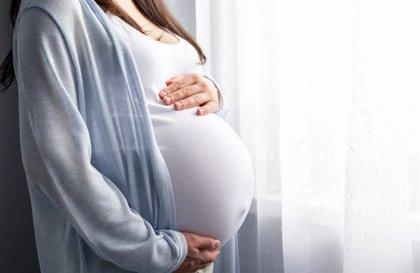27
03/2022
MADRID, Jan. 10 (EUROPA PRESS) -
The COVID-19 pandemic has caused deficiencies and great inequalities in the care of mothers and newborns in Europe, according to a study carried out by Swedish researchers that denounces that up to 62 percent of women were not allowed to be accompanied by your partner of choice in the delivery room during the first 16 months of the pandemic.
The study, published in the scientific journal 'The Lancet Regional Health Europe' and presented by the University of Gothenburg and the University of Lund, also indicates that 42 percent had difficulty getting adequate help during labor and 31 percent percent on lactation.
Based on a cross-sectional survey in 12 European countries to a total of 21,027 women, from March 1, 2020 to June 30, 2021, it has used the standards of the World Health Organization (WHO). The purpose of the study was to report the quality of care during pregnancy and childbirth, as reported by women themselves, during the COVID-19 pandemic in Europe.
The main findings included a lower overall quality of care perceived by women who had undergone caesarean section and large differences in the standard of care provided in different countries in Europe.

Women in Croatia, Romania, and Serbia reported the lowest levels of maternal and neonatal care, while the highest were reported for women who gave birth in France, Luxembourg, Spain, Sweden, and Germany. Other countries included in the study were Italy, Norway, Portugal and Slovenia.
Younger women and those who underwent instrumental delivery (foceps or vacuum) had significantly lower quality ratings. A notable finding for Sweden was that only 36 per cent of women were asked to consent before instrumental delivery, while insufficient use of protective equipment was also another distinguishing feature.
The researchers remind that, to date, there is a lack of comparative studies that assess how women have perceived the quality of maternal and neonatal care during the pandemic. "The study is unique in that it reports on how more than 21,000 women from 12 European countries have experienced the quality of maternal and neonatal care during the COVID-19 pandemic," explained lead researcher in Sweden. Dr Helen Elden, Senior Lecturer and Associate Professor of Reproductive and Perinatal Health at the Institute of Health and Care Sciences, Sahlgrenska Academy and the University of Gothenburg.
According to the researchers, the study results can help drive action to improve maternal and neonatal care in Europe. "The study shows that it is important to reduce inequalities and promote evidence-based, patient-centred care for all mothers and newborns in Europe, both while the pandemic continues and afterwards," concludes Helen Elden.

- 1037
- Can women's health np give birth?
Related Articles
How many sit-ups should I do a day to get rid of my belly?
30/01/2022Flattening the abdomen or reducing the fat in this area is a difficult task. But don't despair, we will solve the question: how many sit-ups should I do a day to eliminate the belly. Abdominal fat...
Jalisco The Ministry of Health invites men and women to learn about family planning services
04/02/2022The Jalisco Ministry of Health invites men and women of reproductive age to learn about and use the various services offered by the Family Planning and Contraception Program, which...
Telva International day against gender violence: screens multiply mistreatment against women
01/02/2022SaludUpdated Change of scenery, same victims. On the International Day for the Elimination of Violence against Women, we highlight how aggressions have been copied to the digital sphere, increasing...
Coronavirus Spain today | | Health The Trust Project
18/03/2022The Ministry of Health has reported 3,261 new coronavirus infections and 155 deaths, while the cumulative incidence drops more than six points in 24 hours to 109.3 cases. There is...